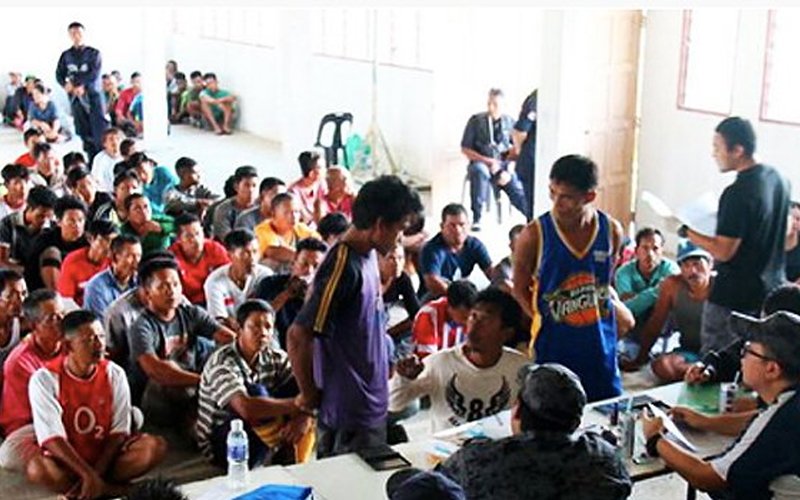PARTI Bersatu Sabah (PBS) president Datuk Seri Dr Maximus Ongkili was right when he raised the issue at the PBS annual delegates assembly last week that a “Barisan Nasional (BN) component party” was responsible for a citizenship-for-votes scheme and that efforts must be undertaken to remove unqualified individuals from the voter list.
But this has only highlighted PBS’s triple tragedy.
The first tragedy is that the PBS founding president Tan Sri Joseph Pairin Kitingan and its current president Ongkili had done nothing to resolve the 45-year nightmare of the illegal immigrants in Sabah who could cast votes when PBS returned to BN in 2002.
This was when Pairin was the Sabah deputy chief minister from 2004 to 2018. He was appointed chairman of the Working Committee on the Royal Commission of Inquiry (RCI) into illegal immigrants in Sabah from 2015–2018.
Meanwhile, Ongkili was a full-fledged Cabinet Minister for 14 years from 2004–2018.
The second tragedy is the lack of support from PBS and the other PBS leaders for Ongkili’s claim that a “BN party” was responsible for a citizenship-for-votes scheme in Sabah.
The third tragedy is that Ongkili will continue to be impotent in resolving the issue that he spoke of although he is the Minister in the Prime Minister’s Department in charge of Sabah and Sarawak affairs.
I remember that when I devoted the bulk of my speech in March 1986 in Parliament on the Fifth Malaysia Plan on Sabah and the problem of illegal refugees in the state, I estimated that there were about 300,000 Filipino illegal immigrants in Sabah.
I called on the federal government to take firm action to uphold the law, honour the Rukun Negara and liberate Sabahans from the menace posed by the illegal immigrants by sending increased reinforcements of police and security forces, in particular marine police, to protect Sabahans from internal unrest and external threat fomented by the illegal immigrants.
I proposed in Parliament in 1986 that the illegal immigrants should be repatriated to their own country, warning that there was a conspiracy to illegally enfranchise the illegal immigrants and give them voting rights to change the political map of Sabah.
After all, it was an “open secret” that the illegal immigrants had been given blue identity cards and were registered on the electoral register.
I calculated at the time, i.e., 36 years ago in 1986, that out of 48 Sabah State Assembly seats, 21 were Kadazan majority seats, 8 Chinese majority seats and 19 Malay majority seats.
I had warned that if the illegal enfranchisement of illegal immigrants were allowed to take place unimpeded, the electoral complexion could be changed to 16 Kadazan majority seats, 2 Chinese majority seats, and 30 Malay/Filipino/Indonesian seats.
All these concerns which I had expressed in Parliament in 1986 had come to pass, with fundamental changes in the political demography and socio-economic circumstances in Sabah as a result of the illegal enfranchisement of illegal immigrants, as testified in the RCI report.
Can Ongkili, as the Minister in the Prime Minister’s Department in charge of Sabah and Sarawak Affairs, present a ministerial statement when Parliament meets on July 18 on how he proposes to resolve this 45-year nightmare of illegal immigrants in Sabah? – July 5, 2022
Lim Kit Siang is a DAP MP for Iskandar Puteri.
The views expressed are solely of the author and do not necessarily reflect those of Focus Malaysia.
Main photo credit: FMT









